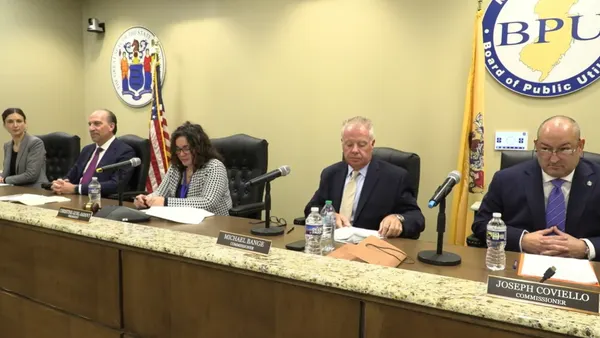The Public Utilities Commission of Ohio on Wednesday ordered three FirstEnergy utilities to pay $250.7 million for the H.B. 6 corruption scandal and other rule violations.
The PUC ordered Ohio Edison Co., The Cleveland Electric Illuminating Co. and The Toledo Edison Co. to pay $186.6 million in refunds and restitution to their customers and to pay $64.1 million in civil forfeitures.
The utilities must refund $180 million to their customers over three billing cycles — triple the $60 million FirstEnergy used in a bribery scheme involving the passage of legislation in Ohio that in part aimed to prop up financially struggling nuclear power plants, according to the decision.
“These [$60 million in] funds represent an unnerving shadow over our regulatory role in this state and have harmed each and every consumer whose interests we aim to protect in proceedings before us,” the PUC said in its decision.
“Ohioans expect and deserve fair utility bills and utility companies that follow the law,” Maureen Willis, director of the Office of the Ohio Consumers’ Counsel, said in a statement. “Today’s PUCO order requiring fines, restitution and refunds is an important milestone in fixing the harms FirstEnergy caused.”
FirstEnergy spokeswoman Lauren Siburkis said the PUC’s decision “closes a chapter tied to activities that do not represent the company we are today. FirstEnergy is committed to accountability, transparency and rebuilding trust.”
“The Ohio companies remain focused on investing in the distribution system to enhance reliability and improve the customer experience for the benefit of more than two million customers in the state,” FirstEnergy said in an investor update on Thursday.
The sanctions create a near-term cash drag for FirstEnergy, but clears a major regulatory risk, according to equity analysts with Jefferies. “We believe this was the last remaining key item to close out this chapter of the company's history,” they said Thursday.
Separately, the PUC approved a $34 million rate increase for FirstEnergy’s Ohio utilities, down from a $190 million requested rate hike. It authorized a 9.63% return on equity compared to the utilities’ request for a 10.8% ROE.
“While the precise pacing of cash payments and bill credits will determine the short-term hit to credit metrics, we see the bigger implication as the removal of tail-risk around further PUCO monetary penalties and the establishment of a more predictable, if less generous, return framework that should allow [FirstEnergy] to keep funding Ohio grid and reliability capex within its broader regulated investment strategy,” the Jefferies analysts said.
In its decision related to the H.B 6 investigations, the PUC said FirstEnergy and its Ohio utilities have made “significant changes to instill a commitment to ongoing oversight and transparency, including the creation of the Office of Ethics and Compliance to institute and promote an appropriate culture and the implementation of several overarching policies to govern the relationships and interactions between FirstEnergy Corp. and its affiliates with those operating within the political and public spheres.”
FirstEnergy, based in Akron, Ohio, has already agreed to pay $390 million in other federal and state penalties related to the corruption scandal.
From 2017 to 2020, FirstEnergy and FirstEnergy Solutions, a power supply company, paid about $60 million to Generation Now, an entity controlled by Larry Householder who was elected speaker of the Ohio House of Representatives in January 2019, the the U.S. Securities and Exchange Commission said in a $100 million settlement order issued 2024.
The payments to GenNow aimed to help Householder get elected as speaker; help Householder gather support for H.B. 6; defeat a referendum effort aimed at placing a measure to repeal H.B. 6 on the Ohio ballot; and fund a term-limit initiative led by Householder, which could have allowed him to remain in power for up to 16 additional years, the SEC said. Householder is serving a 20-year term in federal prison.
















